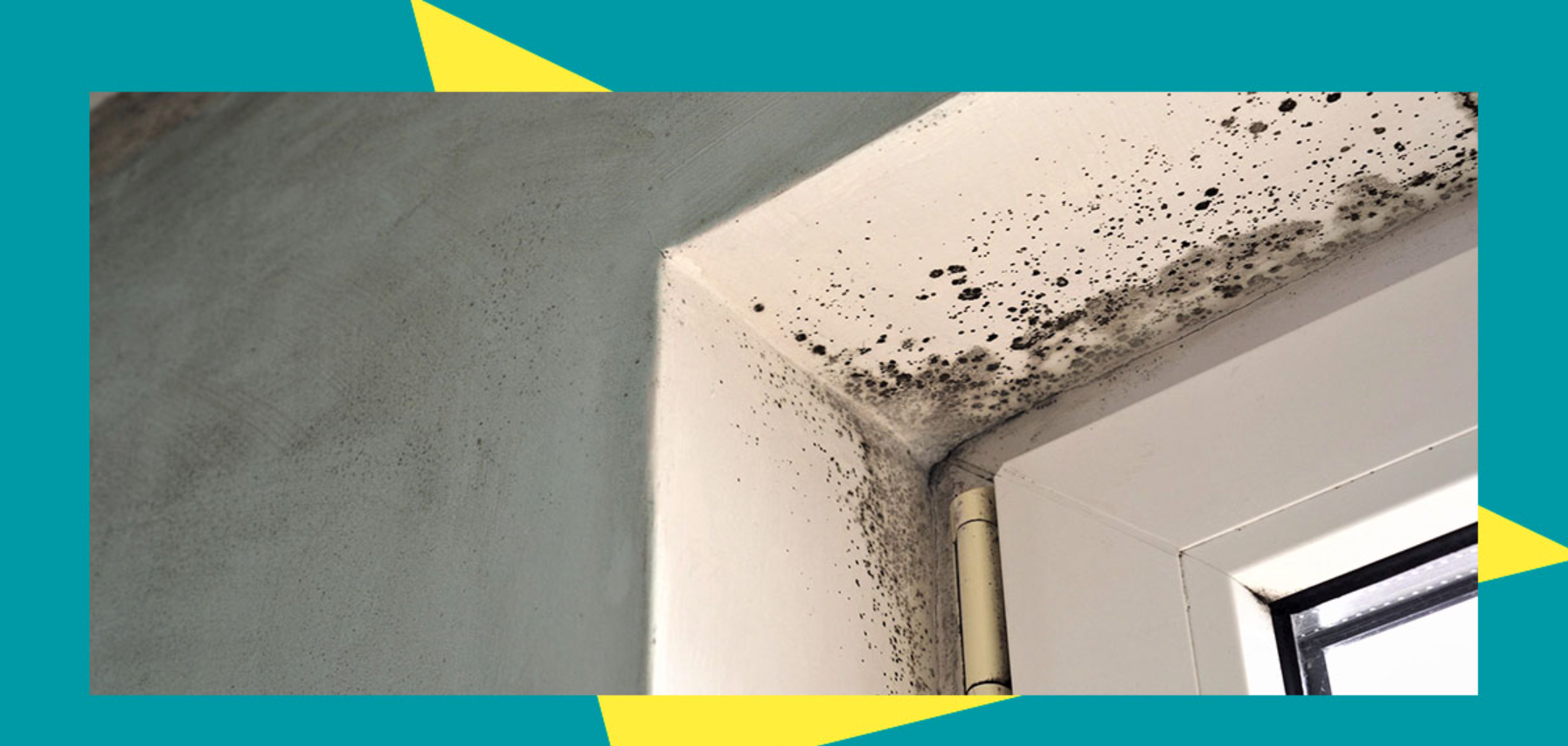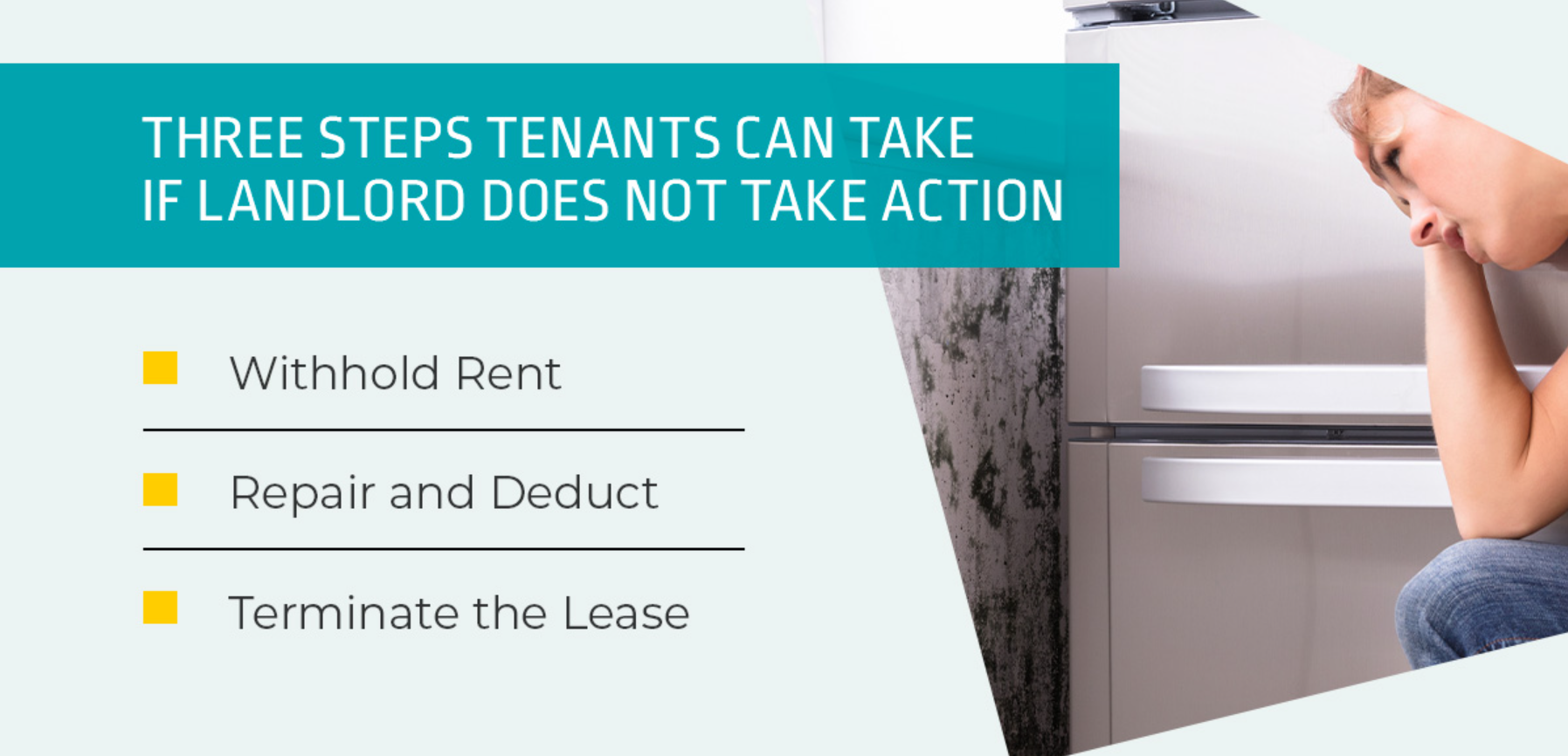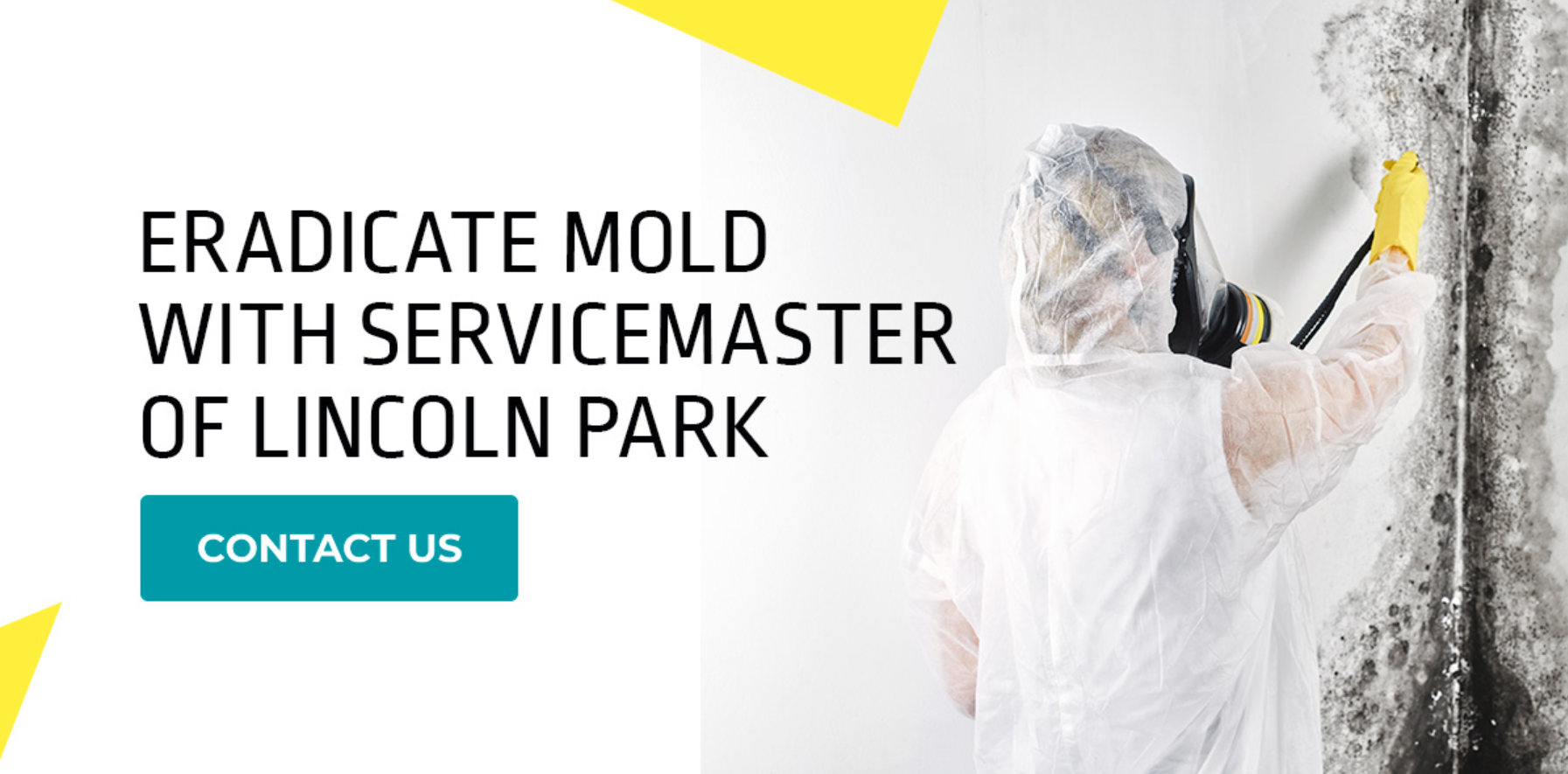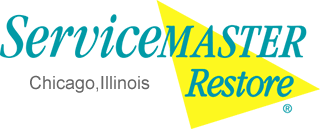Mold in Chicago Apartments: Renter and Landlord Rights

Mold isn’t just unsightly — it can be downright dangerous and costly.
Study after study tells us that mold should be removed immediately for the health and wellness of the people living close by. Without intervention, mold continues to grow, creating problems for those with sensitivities and allergies to the spores. And mold doesn’t just hurt individuals and pets — it also destroys structural integrity.
Because moisture and mold go hand in hand, any mold-filled area likely also suffers from water exposure. As we all know, water is a culprit that can quickly cause wood to rot, vinyl flooring to peel, hardwood to warp and metals to rust. From the viewpoint of a renter or a landlord, having a mold-free unit just makes good sense.
Whether it’s a condo or a more traditional apartment, both parties should understand how Illinois rental laws treat mold issues and what tenants’ rights in Chicago say about mold conditions.
Mold Rights for Tenants in Chicago Apartments
Although not explicitly defined by the state, general habitability Illinois laws still protect tenants from living in unsafe conditions, including mold-infested units.
The Chicago Residential Landlord and Tenant Ordinance states that landlords must keep rental properties in conditions suitable for occupancy. This means that issues like mold fall under the landlord's responsibility to fix. If you're a tenant residing in a moldy apartment, understanding your rights can help you take the necessary steps to create and live in a healthy environment.
For tenants, it's important to know that if mold develops because of personal neglect, like failing to report a leak or not using ventilation properly, the responsibility to address the issue might shift back to you.
Tenant Mold Issue Protections in Chicago
Illinois landlord-tenant laws are written to protect both tenants and landlords. From the tenant’s perspective, the discovery of mold should initiate an immediate call to the landlord. However, if the landlord does not take action to contact a mold remediation specialist to determine what’s happening, the tenant does not have to feel helpless. Here are three steps they can take to remedy the situation.

1. Withhold Rent
The laws state that a tenant living in an apartment or dwelling in Illinois can actually hold back from paying rent if a landlord has not taken care of mold issues. This doesn’t mean tenants can simply withhold a rental check for any reason.
Obviously, their concerns have to be provable. Essentially, the apartment must be labeled as inhabitable, which usually means the mold problem is bad, perhaps causing obvious health risks for the people living in the structure.
2. Repair and Deduct
Tenants can also repair the mold issue themselves and deduct the cost from the rent. You can call a professional mold remediation company and pay to completely sanitize the area affected by mold spores.
This strategy is recommended for minor issues. Ensure you document everything, take before and after repair photos, keep all receipts and inform your landlord of the actions you've taken.
3. Terminate the Lease
In cases where mold makes the apartment inhabitable, tenants have the right to terminate the lease early. If you take this step, ensure you're up to date with rental payments and have proper documents in place.
Landlord Responsibilities for Mold in Apartments
As a landlord, you should keep your rental properties in a safe and habitable condition. A few mold prevention responsibilities entail:
- Maintaining the furnace: Poor ventilation can lead to moisture buildup and mold growth. Contact mold inspector specialists for regular furnace checks and servicing.
- Weatherproofing windows: Windows are a common entry point for water, especially in older buildings. Ensure that windows are properly sealed and weatherproofed to prevent leaks that lead to mold growth.
- Repairing walls, ceilings and floors: Mold often starts in areas where water has seeped into walls, ceilings or floors. Regularly inspect these areas for signs of damage or wear and tear. Promptly repairing any issues can prevent major mold infestations.
- Preventing stagnant water accumulation: Basements, crawl spaces and attics are prone to stagnant water. Installing proper drainage systems and using dehumidifiers are effective ways to keep these areas dry and mold-free.
Legal Recourse
In some cases, filing a lawsuit against a landlord helps tenants pursue a resolution confidently, knowing they are well-prepared to address mold damage in Chicago apartments.
Before taking legal action, tenants should notify their landlords in writing and give them 14 days to respond. If the landlord fails to take appropriate action, tenants can then explore legal options.
Consulting with a lawyer who specializes in tenant rights is a wise step. They can help assess the situation, determine if the case is strong enough to hold up in court and guide tenants through the process. It's also important to document everything — photos, correspondence and receipts — as this serves as vital evidence if the case goes to court.
Prevention Tips
Preventing mold is often easier than dealing with an infestation. Both tenants and landlords can take the following simple steps to reduce the risk of mold growth:
- Measure indoor humidity: Since mold thrives in moist environments, you should aim to keep indoor humidity levels below 60%. You can monitor humidity levels with a hygrometer, a small device that measures moisture in the air. This can alert you of potential problems before mold has a chance to grow.
- Open the window: Open windows regularly to allow fresh air to circulate and reduce moisture buildup, especially in bathrooms and kitchens where steam from cooking and showers can create a humid environment.
- Use exhaust fans: Exhaust fans help expel moist air. Run the fan during and after showers or cooking to keep the air dry.
- Monitor outdoor drainage: Ensure water drains away from your building's foundation. Poor drainage can lead to water pooling, which can seep into the building and create ideal conditions for mold. Check that your drainage systems are working properly, and make any necessary repairs.
- Keep rain gutters clean: Clogged gutters can cause water to overflow and seep into your walls and roof. Cleaning your gutters, especially in fall when leaves are abundant, will help prevent water damage and mold growth.
- Clean up wet spills: Mold can begin to grow within 24-48 hours of exposure to moisture, so it's important to clean spills immediately.
- Repair leaks: Whether it's a leaky roof or plumbing, addressing leaks once they are detected helps prevent mold. Even small leaks can lead to significant moisture buildup over time, creating the perfect conditions for mold to thrive.

Eradicate Mold With ServiceMaster of Lincoln Park
If you're dealing with a mold issue in your Chicago apartment, seek professional help. At ServiceMaster of Lincoln Park, we're always ready to assist you with mold cleanup, whether you rent or own your property. Our goal is always to eradicate any mold, leaving behind a dwelling that promotes wellness and security. Contact our team of experts today to find out how we can help restore your living space into a mold-free unit.

